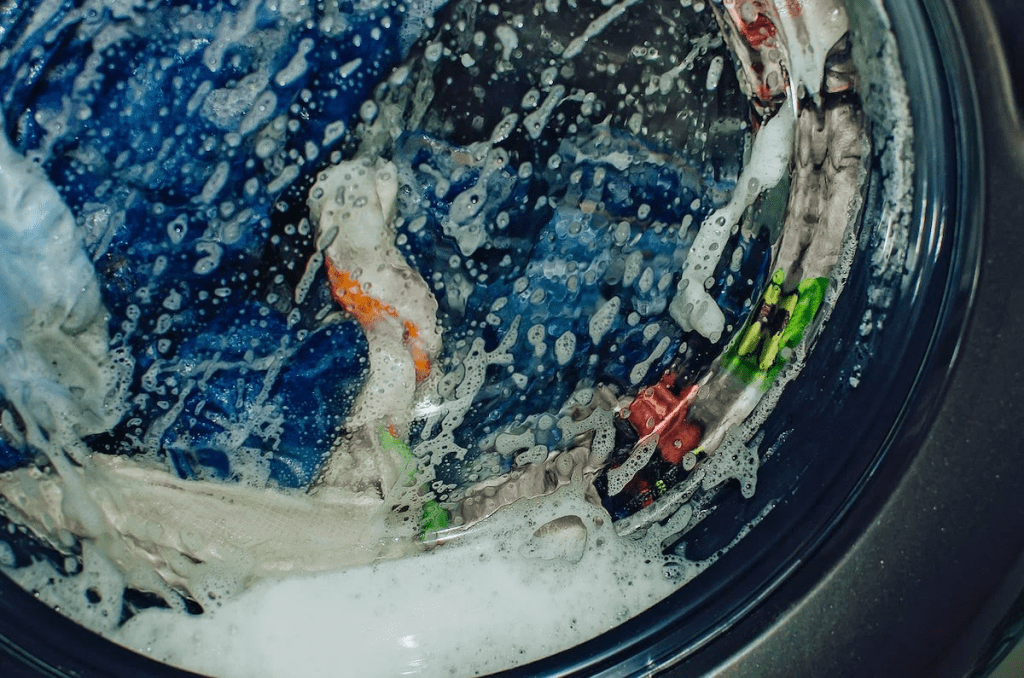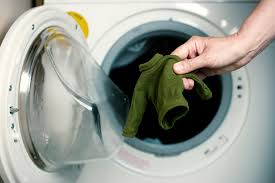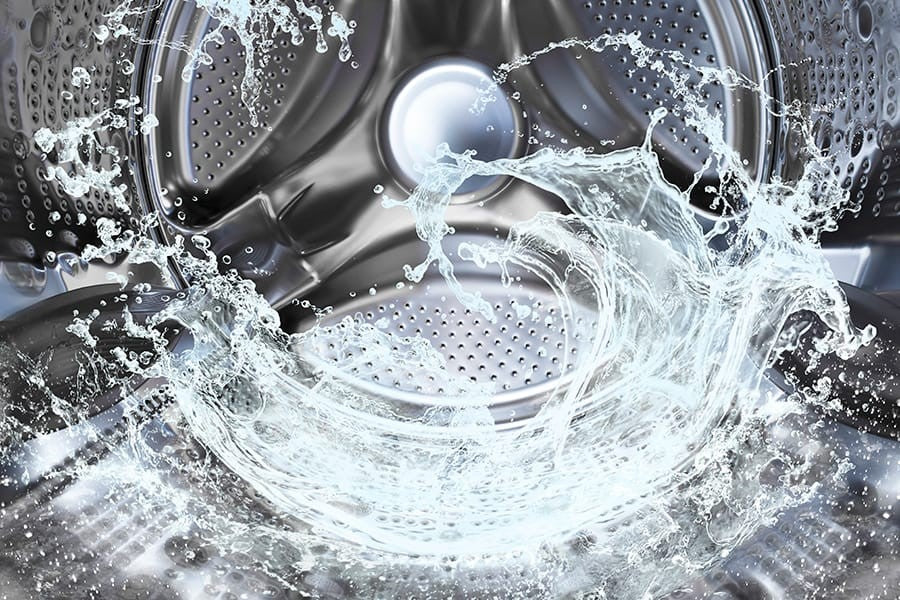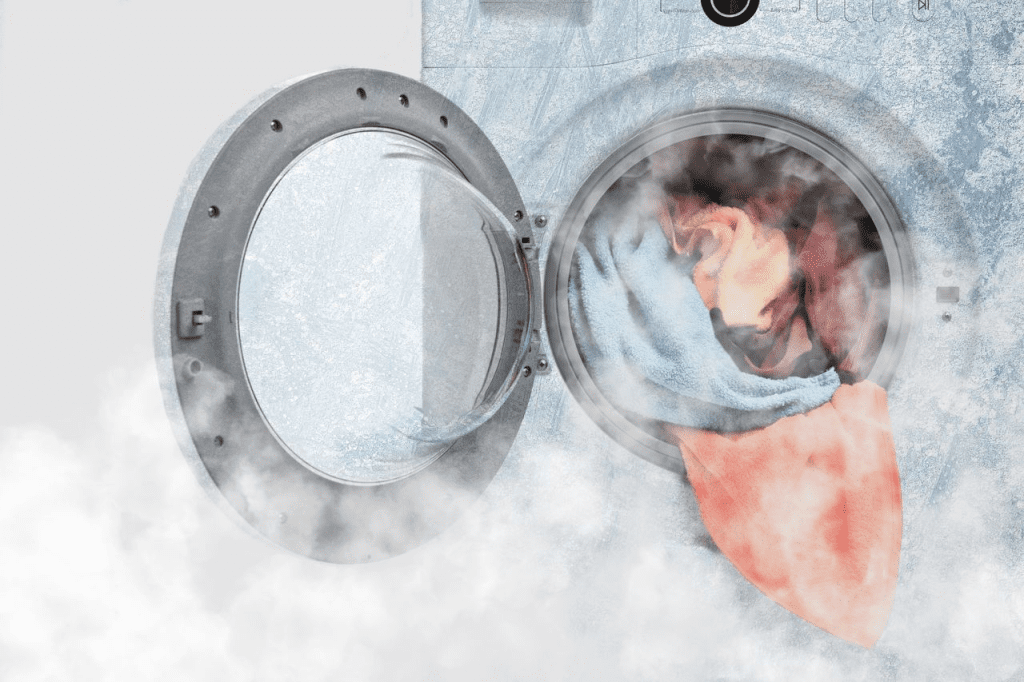When it comes to doing laundry, most of us don’t give much thought to the water temperature we use. However, the choice between warm and cold water can significantly impact your clothes, your energy bill, and even the environment. While cold water is often recommended for its energy-saving benefits, there are situations where washing your clothes in warm water might be the better option. In this article, we’ll explore what happens when you wash clothes in warm water instead of cold, and how to choose the right temperature for your laundry needs.

The Benefits of Washing Clothes with Warm Water
More Effective Stain Removal
One of the most significant advantages of using warm water is its ability to remove tough stains more effectively than cold water. Warm water helps to break down oils and other substances that can make stains stubborn. If you’re dealing with greasy stains from makeup, motor oil, or food spills, warm water can be your best ally.
Kills Germs and Bacteria
Warm water has the added benefit of killing germs and bacteria that might be lurking on your clothing. This is especially important if someone in your household is sick or has a compromised immune system. By washing your clothes in warm water, you can help ensure that they’re not just clean but also sanitized.
Prevents Shrinking and Wrinkling in Certain Fabrics
Certain fabrics, particularly cotton, can shrink or wrinkle when washed in cold water. Warm water helps to relax the fibers, reducing the likelihood of shrinkage and making your clothes look and feel better. This is particularly useful for items like bedsheets, towels, and denim.
Extends the Life of Your Clothes
Washing clothes in warm water can actually help extend their lifespan. Warm water is better at dissolving detergents and breaking down residues, which means your clothes are less likely to suffer from the wear and tear that can occur with cold water and harsh detergents. This means your clothes stay looking new for longer.
The Benefits of Washing Clothes with Cold Water
Saves Energy and Reduces Utility Bills

Washing machines use the majority of their energy to heat water. By washing your clothes in cold water, you can significantly reduce your energy consumption, leading to lower utility bills. In fact, cold water washing can cut energy use by up to 90%, making it a smart choice for both your wallet and the planet.
Preserves Fabric Colors and Textures
Cold water is gentler on fabrics, helping to preserve the color and texture of your clothes. This is especially important for brightly colored garments, dark fabrics, and delicate materials like silk or wool. Cold water reduces the risk of fading, color bleeding, and fabric damage, keeping your clothes looking vibrant and fresh.
Ideal for Delicate Fabrics
Delicate fabrics such as silk, lace, and wool are best washed in cold water. Cold water minimizes the risk of shrinking, stretching, or otherwise damaging these fragile materials. When washing delicates, it’s also a good idea to use a laundry detergent specifically formulated for cold water to achieve the best results.
How to Choose the Proper Temperature for Your Laundry
Check the Care Labels

Always start by checking the care labels on your garments. These labels provide the manufacturer’s recommendations for the best washing practices, including the ideal water temperature. Following these guidelines is the best way to ensure your clothes stay in good condition.
Consider the Type of Stains
The type of stains you’re dealing with should also influence your choice of water temperature. As mentioned earlier, cold water is better for protein-based stains like blood and sweat, while warm water is more effective for greasy, oily stains.
Use the Right Detergent
When washing in cold water, it’s important to use a detergent designed to perform well at lower temperatures. These detergents are formulated to dissolve and clean effectively in cold water, ensuring your clothes come out fresh and clean.
Is Warm or Cold Water Better for Stain Removal?
Cold Water for Protein-Based Stains

Protein-based stains, such as those from blood, sweat, or dairy products, are best treated with cold water. Warm water can cause these proteins to coagulate, making the stains harder to remove. Cold water helps to dissolve and lift these stains from the fabric.
Warm Water for Greasy Stains
Greasy or oily stains, like those from food, makeup, or motor oil, respond better to warm or hot water. The heat helps to break down the oils, making it easier for the detergent to wash away the stain. For best results, pre-treat the stain with a little detergent before washing in warm water.
Choosing between warm and cold water for laundry might seem like a small decision, but it can have a big impact on your clothes, your energy bill, and the environment. While warm water is great for removing tough stains, killing germs, and caring for certain fabrics, cold water excels at saving energy and preserving delicate materials. By understanding the benefits of each, you can make informed decisions that keep your clothes looking great and help you live more sustainably.


